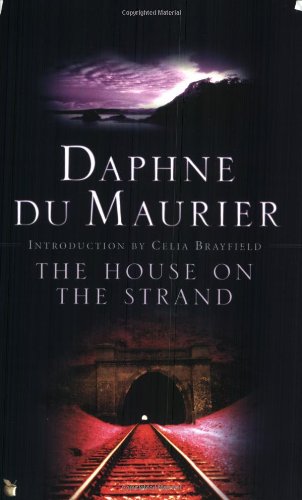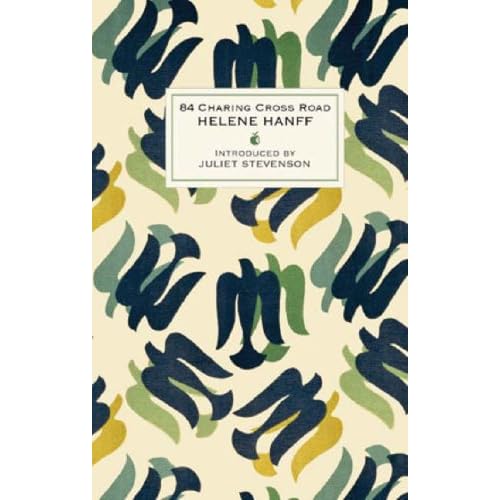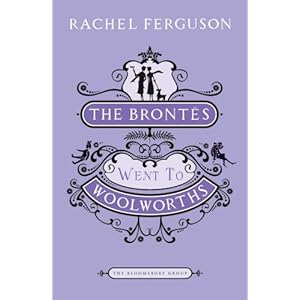I've oft' made a generic sweeping statement on here about how I am not a big fan of short stories. There have been collections that I've enjoyed, and there have been collections that I've struggled through. Daphne Du Maurier's The Doll: Short Stories falls somewhere in-between. All the stories in this collection, but one, were written in between 1926 and 1936, and are amidst Du Maurier's earliest works. The last story, The Limpet, was written in 1959. There is a common theme that binds all the stories together; whilst the first two stories would nudge one to think the theme is macabre, it is more about unproportionate(?) love. One character inevitably loves the partner more than the partner loves them. It's not quite unrequited, because at the very inception of their relationships, the characters are optimistic about the longevity of their propinquity. However, through twists and turns, it turns out that happy endings are just not meant to be.
Du Maurier's talent lies in creating an atmosphere so real and captivating that the reader is unable to turn away. On that front, this anthology does not disappoint. However, with the opening two stories, East Wind and The Doll, I found the climax leaving much to be desired. I don't believe that I am worthy of criticising Du Maurier's work, but simultaneously, this blog is just the idle naïve reflections of me walking in a literary wonderland, and I fully acknowledge that.
In East Wind, Du Maurier narrates the story of a idyll-like island with a population of merely seventy, which some nomadic sailors visit one day, and make merry with the islanders. However, all is not well when one of the inhabitants stumbles into infidelity with one of the newcomers, resulting in a horrific yet inevitable ending. My main gripe with short stories has always been that the ending is not natural, but forced upon the reader, and this story was no exception.
The Doll, on the other hand, had an air of wistfulness to it. The protagonist was called Rebecca, and for half a second, I did wonder if this was a pre-Manderley foray into the world of Rebecca. It wasn't. I loved how the story was told - just a verbatim recount from pages of a pocket notebook washed ashore. Yes, it is a device used by short-story tellers again and again, and yet, each time, there is a charm to it. The story, itself though, had me baffled, for it was about a man who falls hopelessly in love with a Hungarian girl, Rebecca. However, she is unable to reciprocate the love, and I was unable to make out whether she was holding back, or just did not reciprocate. Yet, it turned out that she had a life-size doll, who she would rather love. Baffling, as I said. I couldn't quite make out if it was a pathetic fallacy, or well, I'm not quite sure what.
AndNow To God The Fatherand The Limpetboth had protagonists that were holier-than-thou, and manipulated people around them so easily, yet with such little self-awareness or guilt. In the former, the much-loved vicar turned out to be selfish beyond reason, whereas in the latter, the protagonist thought she was helping the people she was manipulating, in a manner so hypocritical that I did wonder whether I should be giving her the benefit of the doubt. I think And Now To God The Father remains my favourite story in the book, simply because it goes to show that redemption is a myth, and people only care about themselves. Such is reality.
A Difference In Temperament, Nothing Hurts For Long, And His Letters Grew Colder, andWeek-End are all stories tracing disproportionate love. Or rather, the characters unable to express themselves, resulting in them drifting away. The initial sanguineness descends to separation, and at least in the first of the three stories, it is simply because none of the two protagonists are able to express themselves to one another. These stories didn't really speak to me, and I was left feeling quite indifferent towards the characters and whatever fate had in store for them. If things didn't quite work out for them, I almost felt as though it's because they deserved nothing better. Or maybe, well, the characters did actually deserve one another.
Frustration reminded me of O Henry's The Gift of the Magi. A boy, a girl, in love, and trying to make it on their own with no money, but still content as they have one another, and that helps them make the best of a bad situation. Yet, I wonder if it's the title of this story that reduced its impact significantly. The Gift of the Magi is such a wonderful story, in that the ending is not surprising in the least, but the sweetness that lingers at the end makes it a classic. Yet, one simply cannot say the same thing about Du Maurier's short story.
Piccadillyand Mazie both follow the same character, Mazie. Now, Alice Munro works wonders providing glimpses into characters at different points in their lives through her short stories, but with these two stories, Du Maurier weaves a magical tale as well. Piccadillyis the story of Mazie before she turns to prostitution as a profession, whereas Mazie is a peephole into her life as a prostitute, and both are incredibly well-written. The last line of Piccadilly had me absolutely dumbstruck, for it was so powerful yet so simple. I'd quote it here, but I wouldn't want to ruin it for anyone who wants to read this collection. It's marvellous though, it really is, and just for the subtlety yet impact of that last line, I remain in awe.
Tame Cat had me feel quite queasy, for the character being referred to as the tame cat wasn't really tame, and... It's a coming-of-age story of a young girl, who goes back home for Christmas break, to spend the holidays with her mother and "Uncle John" (i.e. Tame Cat). She goes back home, with high aspirations, looking all grown-up, quite sure that her mother would be proud of her, but her mother is not happy with the girl she sees get off the train. Yet, "Uncle John" is. You can tell how this story goes, and well - the naiveté of the girl coupled with the wickedness of "Tame Cat" just... Words do fail me.
And finally, you have The Happy Valley, which again sets a fantastic scene. The valley, the search for a dream home, a confused young protagonist with a history of illness, and just some surreal visions. Again, there was something Manderlay-esque about this story, but I cannot quite pinpoint what.
The stories were written very early in Du Maurier's writing career, and they don't hold a candle to her later works. They are the setting stones for something far more spectacular, but they don't blow one's mind as they stand. Perhaps there is a reason why some of these stories were only recently discovered, some seventy years after Du Maurier had written them. I would like to read her later short stories, and compare, but for now, I must finish all her novels. That is essential.

 If there ever was a perfect book, this would be it. Yes, I know that's an extremely strong and subjective statement, but I don't think many people who have read this will disagree. It's feel-good, happy, and just... perfect.
84 Charing Cross Road revolves around two people living halfway across the world from one another, with their warmth, kindness, generosity, and love of books bringing them together. The book is a series of real letters exchanged between the two of them over a period of twenty years, starting in October 1949.
If there ever was a perfect book, this would be it. Yes, I know that's an extremely strong and subjective statement, but I don't think many people who have read this will disagree. It's feel-good, happy, and just... perfect.
84 Charing Cross Road revolves around two people living halfway across the world from one another, with their warmth, kindness, generosity, and love of books bringing them together. The book is a series of real letters exchanged between the two of them over a period of twenty years, starting in October 1949. The Brontës Went to Woolworths is one of those utterly bizarre books, with quirky characters and a story which makes the mind boggle. The thin line between fact and fiction is erased by the Carne sisters - the protagonists of this book - as they let their imaginations run away with them, and create a wondrous warm world of friendship, happiness and make-believe. A dog who used to be Pope, a doll who used to live in Paris and friends in high places, including Judge Toddington ("Toddy").
You also have their mother, who indulges them and the prudish governess, Miss Martin, who judges them, as she can't quite fathom what's going on inside the bubble the family has created for themselves, probably to cope with grief and sadness after their father's unfortunate demise. To be fair, one can't really blame Miss Martin for being confused about what's going on in this 1930s household - I was utterly baffled by what was going on for the first fifty odd pages, and I kind-of had an inkling of a clue. However, once I figured out the line that the Carnes had erased, things suddenly became much clearer...
The Brontës Went to Woolworths is one of those utterly bizarre books, with quirky characters and a story which makes the mind boggle. The thin line between fact and fiction is erased by the Carne sisters - the protagonists of this book - as they let their imaginations run away with them, and create a wondrous warm world of friendship, happiness and make-believe. A dog who used to be Pope, a doll who used to live in Paris and friends in high places, including Judge Toddington ("Toddy").
You also have their mother, who indulges them and the prudish governess, Miss Martin, who judges them, as she can't quite fathom what's going on inside the bubble the family has created for themselves, probably to cope with grief and sadness after their father's unfortunate demise. To be fair, one can't really blame Miss Martin for being confused about what's going on in this 1930s household - I was utterly baffled by what was going on for the first fifty odd pages, and I kind-of had an inkling of a clue. However, once I figured out the line that the Carnes had erased, things suddenly became much clearer... Oh, it's been absolutely ages since I've read a 470+ page book in a day, but boy, this one was absolutely worth it. It's been labeled "wicked", "sordid" and even "cheap". I half thought of
Oh, it's been absolutely ages since I've read a 470+ page book in a day, but boy, this one was absolutely worth it. It's been labeled "wicked", "sordid" and even "cheap". I half thought of  There's a thin line between reality and fiction; they oft' reflect each other very closely, so much so that the line is indiscernible. But - what happens when reality starts imitating fiction?
That's the basic premise of Spark's 1981 novel, starring Fleur Talbot: an aspiring writer in London in the 1950s. She's writing her first novel, Warrender Chase, but she needs a job to get by while she finishes it. And so, she takes up the position of the secretary to Sir Quentin Oliver, and his brainchild: The Autobiographical Association.
There's a thin line between reality and fiction; they oft' reflect each other very closely, so much so that the line is indiscernible. But - what happens when reality starts imitating fiction?
That's the basic premise of Spark's 1981 novel, starring Fleur Talbot: an aspiring writer in London in the 1950s. She's writing her first novel, Warrender Chase, but she needs a job to get by while she finishes it. And so, she takes up the position of the secretary to Sir Quentin Oliver, and his brainchild: The Autobiographical Association. Angela Carter's debut book, Shadow Dance, is the fifth book by her that I've read, and it's as bizarre as the previous three. Due to a million other things, I wasn't able to get my thoughts out on this sooner, which is a pity, as I wanted it to tie in with Claire's
Angela Carter's debut book, Shadow Dance, is the fifth book by her that I've read, and it's as bizarre as the previous three. Due to a million other things, I wasn't able to get my thoughts out on this sooner, which is a pity, as I wanted it to tie in with Claire's  I discovered the wonderful world of
I discovered the wonderful world of  Sometimes, I wonder about myself. Half way through this Fantastic February Female Frivolities (I like alliterations, love double alliterations...), I realised I hadn't picked out a single
Sometimes, I wonder about myself. Half way through this Fantastic February Female Frivolities (I like alliterations, love double alliterations...), I realised I hadn't picked out a single  The Ha-Ha is Jennifer Dawson's first novel, published in 1961. It follows the life of Josephine, a young woman with a mental illness, that often leaves her in hysterics, after she has been removed from Oxford and committed to a mental institution.
The Ha-Ha is Jennifer Dawson's first novel, published in 1961. It follows the life of Josephine, a young woman with a mental illness, that often leaves her in hysterics, after she has been removed from Oxford and committed to a mental institution.
 For twenty four years, Daphne Du Maurier has eluded me, and I'm still trying to figure out how! I read
For twenty four years, Daphne Du Maurier has eluded me, and I'm still trying to figure out how! I read  I stumbled upon The Robber Bridegroom in a second hand bookstore, and was intrigued immediately, by the quote on the cover:
I stumbled upon The Robber Bridegroom in a second hand bookstore, and was intrigued immediately, by the quote on the cover: